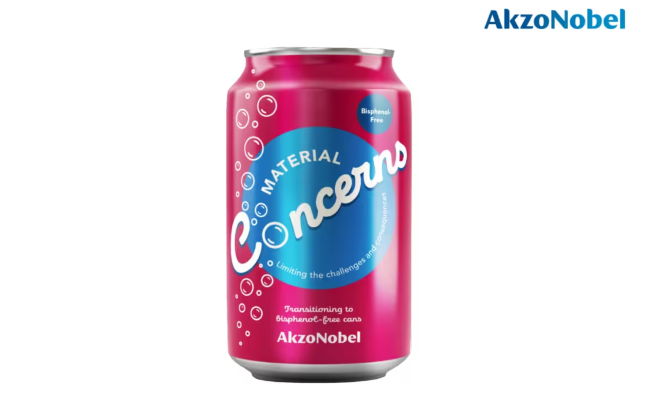AkzoNobel is investing €32 million in a new plant at its Vilafranca site

AkzoNobel’s Packaging Coatings business has launched the first two products in its new Accelstyle range. Designed for the exterior of conventional two-piece aluminum beverage cans, both are free from bisphenols, styrene and PFAS (per- and polyfluoroalkyl substances).
They follow on from the May 2023 launch of AccelshieldT700 – the first BPx-NI (free of intentionally added bisphenols) internal coating for beverage can ends – which complies with US Food and Drug Administration (FDA) and EU regulations.
At the same time, AkzoNobel is investing €32 million in a new plant at its Vilafranca site, which will produce bisphenol-free coatings for the metal packaging industry in EMEA. The facility will use advanced automation and has been designed according to high eco-efficiency standards, enabling the company to make a step-change in energy and material efficiency. It’s expected to be operational by mid-2025 and will create around 40 jobs.
Commenting on the new facility, Jim Kavanagh, Director of AkzoNobel’s Industrial Coatings business, says it will help the company respond to a strong need from the packaging industry. “The Vilafranca plant will allow us to offer leading-edge products to any customer and country in EMEA, responding to the most stringent bisphenol regulations in force in Europe. The investment is in line with our view that bisphenols are no longer required to create safe food contact coatings for the metal packaging industry.”
He adds that the new Accelstyle products further illustrate the company’s commitment to giving customers the tangible support they need to transition to a new future. “Both new products – Accelstyle 100 and 200 – can be seamlessly introduced into existing production processes, allowing can makers to transition to coatings that are free from certain important materials of concern, while remaining as commercially viable as possible.”
Continues Kavanagh: “The bisphenol-free products we’ve developed have a lower carbon footprint, compared with those we previously supplied. For example, the carbon footprint of the products for can interiors that we’ll manufacture in the new facility will be 26% lower than our earlier offerings, which were epoxy-based. And it's important to point out that bisphenol-free metal packaging isn’t just circular, it also meets consumer expectations for more sustainable packaging.”
Subscribe to our newsletter & stay updated.